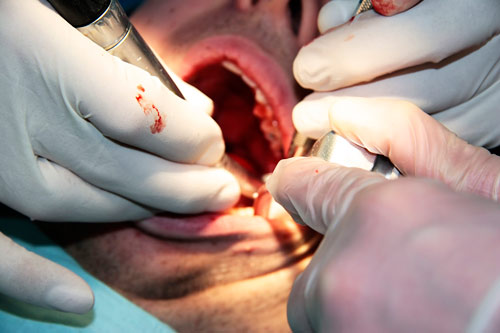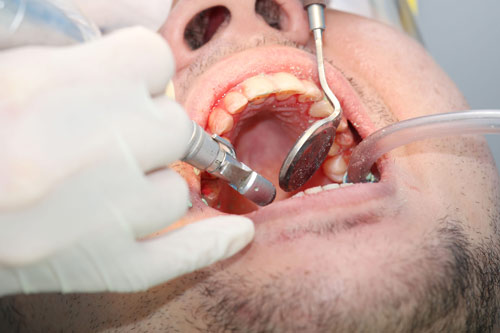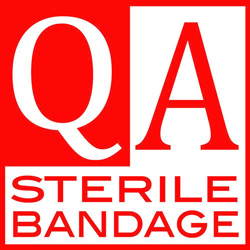Dental Applications
Bleeding Disorders of Importance in
Dental Care
- Extractions
- Root Canal
- Oral Surgeries
- Cosmetic Procedures
- Gingival Inflammation
- Invasive Oral Procedures
- Dental Implant Procedures

Qwick-AID will deliver exceptional results
A number of drugs interfere with platelet function. Dentists and dental hygienists will treat a considerable number of patients with bleeding problems; many clinicians perceive their patients’ bleeding complications as a significant challenge.
Bleeding disorders can be acquired, inherited or drug-induced. Common drug-induced causes of bleeding disorders seen in dental practices include patients on anti-coagulation or antiplatelet therapy that may interfere with hemostasis.
• Warfarin • Coumadin • Heparin • Aspirin
Drugs of abuse, such as alcohol
may also cause excess bleeding
Aspirin and aspirin-containing drugs are by far the most common reason for platelet dysfunction, frequently resulting in a prolonged bleeding time. Aspirin therapy, prescribed or self-administered, is a leading drug widely used by millions of people in the U.S. for its cardio-protective properties.
Patients on “low-intensity” anticoagulation therapy are at a 1% risk for a major bleed and an 8% risk for a minor bleed during multiple invasive dental procedures. It may be hard to tell how much blood is lost during a mouth bleed. During the day, a patient may swallow blood and not be aware of the amount.
Qwick-AID Bandages address the risk of bleeding during and after invasive dental procedures; and is the current recommendation for managing patients on anti-coagulation therapy.
"I have used the Qwick-AID Bandages for post-extraction wound healing and am very pleased with the hemostatic properties. Patients like the fact the bandage does not stick to the wound. This product also provides a barrier to keep the wound site clean and promote healing."
- Gordon Poelman DDS

A clinical bleed may not be observed until several hours or longer after the injury or invasive procedure. The more complex the surgical dental procedure the more significant the bleed, it is recommended that suturing and Qwick-AID can be used to control the clinical bleed. Qwick-AID’s patented technology helps prevent post-operative bleeding from surgical wounds.
Using Qwick-AID all natural Hemostatic Bandages to manage the clinical bleed for all planned dental procedures will arrest oral bleeding in seconds, where post surgical instructions will have a patient hold a gauze pad with gentle pressure for 3 hours to provide a good clot.
Qwick-AID’s inherent hemostatic and alginate antibacterial properties make it far superior to direct packing of synthetic gauze.
Even a small cut or puncture inside the mouth may bleed a lot due to the many blood vessels in the head and neck area.
Bleeding from the blood vessels of the mouth, may occur as a result of injuries to the mouth, accidents in oral surgery, or diseases of the gums; spontaneous gingival bleeding. In addition, diseases from Diabetes to Leukemia will play a part with patient bleeding. Potential bleeding disorders will be encountered, affecting up to 150 patients in a dental practice of 2000 adults.
Dental Procedures
- Implant
- Cosmetic
- Periodontics
- Orthodontics
- Prosthodontics
- General Dentistry
- Extractions - Wisdom Teeth
- Endodontics and Root Canal
- Oral and Maxillofacial Surgery

WHAT YOU NEED TO KNOW
Disorders of the body’s hemostatic system can lead to serious clinical clotting or bleeding consequences during dental procedures.
Additionally, millions of patients who are on anti-platelet therapy to prevent cardiovascular disorders or inflammatory joint disorders will likely cause bleeding problems during invasive dental procedures.



